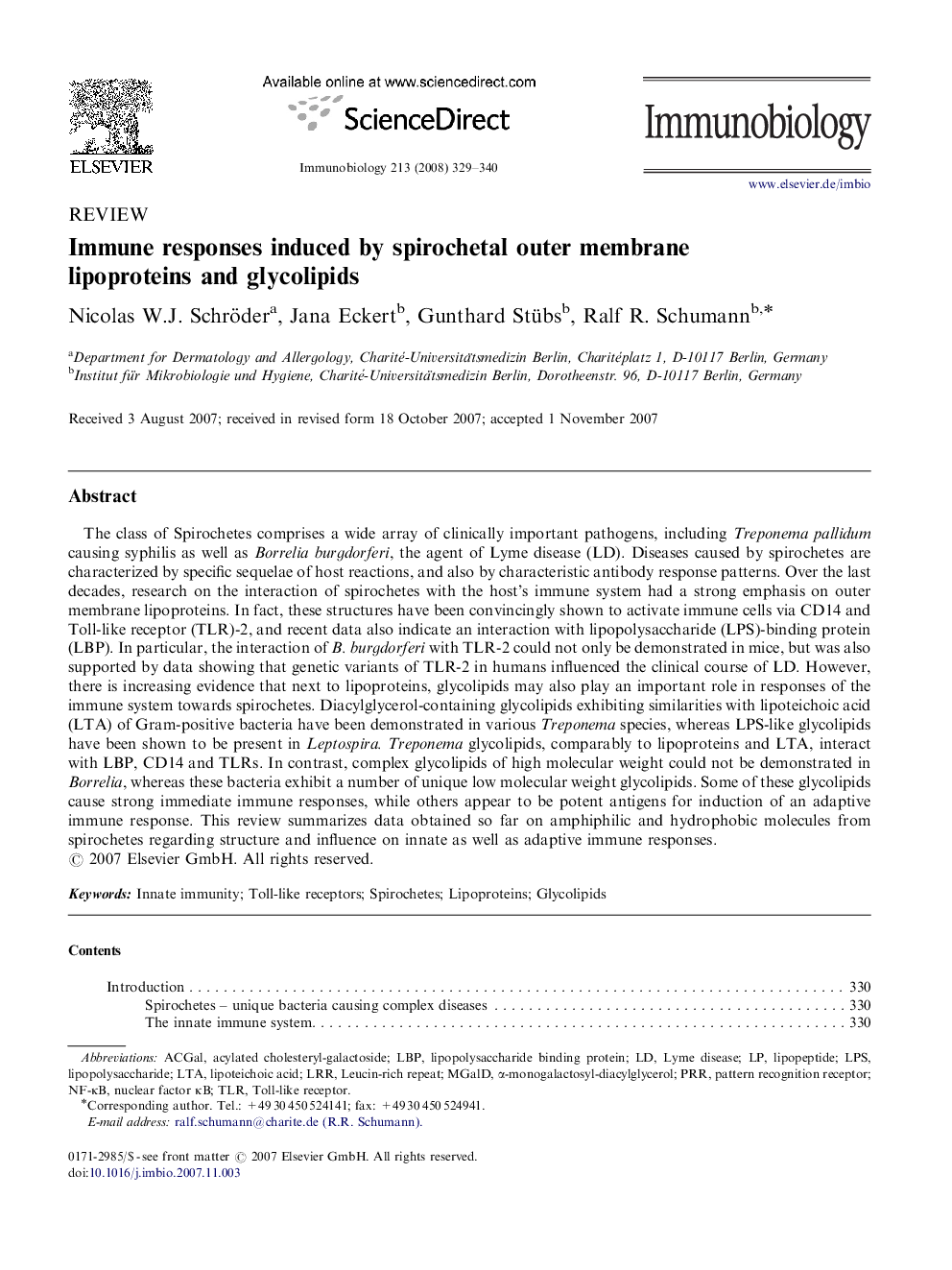| کد مقاله | کد نشریه | سال انتشار | مقاله انگلیسی | نسخه تمام متن |
|---|---|---|---|---|
| 2183852 | 1550301 | 2008 | 12 صفحه PDF | دانلود رایگان |

The class of Spirochetes comprises a wide array of clinically important pathogens, including Treponema pallidum causing syphilis as well as Borrelia burgdorferi, the agent of Lyme disease (LD). Diseases caused by spirochetes are characterized by specific sequelae of host reactions, and also by characteristic antibody response patterns. Over the last decades, research on the interaction of spirochetes with the host's immune system had a strong emphasis on outer membrane lipoproteins. In fact, these structures have been convincingly shown to activate immune cells via CD14 and Toll-like receptor (TLR)-2, and recent data also indicate an interaction with lipopolysaccharide (LPS)-binding protein (LBP). In particular, the interaction of B. burgdorferi with TLR-2 could not only be demonstrated in mice, but was also supported by data showing that genetic variants of TLR-2 in humans influenced the clinical course of LD. However, there is increasing evidence that next to lipoproteins, glycolipids may also play an important role in responses of the immune system towards spirochetes. Diacylglycerol-containing glycolipids exhibiting similarities with lipoteichoic acid (LTA) of Gram-positive bacteria have been demonstrated in various Treponema species, whereas LPS-like glycolipids have been shown to be present in Leptospira. Treponema glycolipids, comparably to lipoproteins and LTA, interact with LBP, CD14 and TLRs. In contrast, complex glycolipids of high molecular weight could not be demonstrated in Borrelia, whereas these bacteria exhibit a number of unique low molecular weight glycolipids. Some of these glycolipids cause strong immediate immune responses, while others appear to be potent antigens for induction of an adaptive immune response. This review summarizes data obtained so far on amphiphilic and hydrophobic molecules from spirochetes regarding structure and influence on innate as well as adaptive immune responses.
Journal: Immunobiology - Volume 213, Issues 3–4, 14 May 2008, Pages 329–340